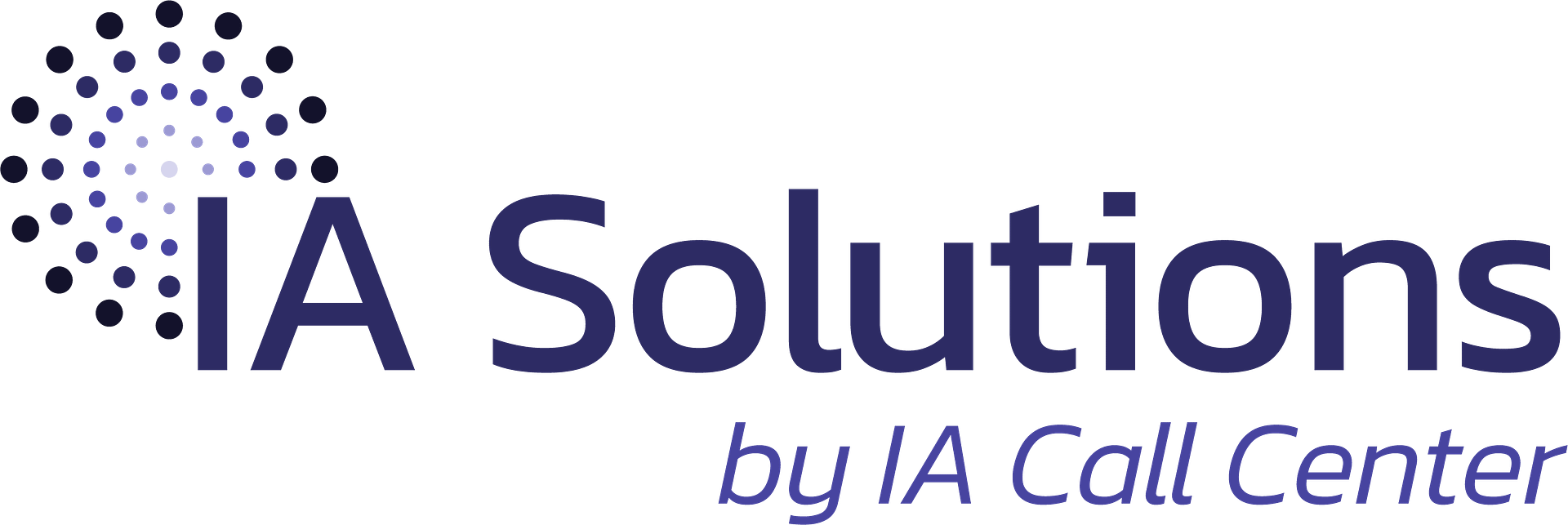In this post, we will discuss the growing demand for call center outsourcing and why it’s important to your business.
Over the last few years, it’s been obvious that the world is changing. COVID, a flailing economy, civil unrest, wars, and other world events have changed the way people work, communicate, and even how they shop for goods and services.
This ever-changing world has made it hard for many brick-and-mortar companies to do business because consumers are just not as mobile or willing to leave their homes to shop or spend their money. And while customers are now beginning to venture back out into the economy, it’s clear that many things will never be the same.

Successful Companies Change with the Times
During the pandemic, businesses that were able to provide more products and services online have weathered the last few years’ turmoil better and sometimes even thrived. However, businesses that survived and grew since 2019 all have one thing in common – they learned to improve and streamline their customer service operations to keep pace in the new world.
Because of the pandemic, many successful companies have learned that proving exceptional customer service and experiences in-house can be a challenge. As a result, many of these companies have outsourced their CX operations to outside call centers.
Call center outsourcing is surging right now and projected to result in the most demand the industry has ever experienced. According to IBISWorld (a call center industry analyst firm), call center market size is on track to reach $24 billion in 2022 and grow even more in the years to come.
In this post, we will discuss some of the reasons why demand for call center outsourcing is surging and why you might not want your company to be left behind.

How COVID, World Conditions, and the Demand for Call Center Outsourcing Changed Customer Service
When COVID arrived, it not only changed the way most people lived, it also changed the way many companies had to do business. Changes ranged from curbside pickups to more stringent safety protocols, and from increased online presence to requiring many employees to work from home. The changes were sweeping and impossible to miss, as they were happening literally everywhere.
But COVID wasn’t the only life-changing issues the world has faced in the past few years. As we alluded to earlier, declining economies, supply chain issues, global violence, and other international problems have also contributed to shifting business practices. And many of these changes will not be reverting anytime soon. In fact, many may be here to stay. Why? Well, this is because customers themselves have changed – a lot.
Of course, there are other facets of life that have changed (i.e., permanent social distancing, stricter health protocols, etc.). And when you combine these major social and business changes, you get what is now referred to as the “New Normal.” This is because, for many, life will never be the same.
The New Normal
So, what does this “New Normal” mean for businesses? Well, it means customers now want and demand more from companies that provide their goods and services. More in terms of quality, more in terms of value, and more in terms of better customer service.
According to a report from contact-solution provider TalkDesk, titled “The revolution in retail customer experience (CX),” customers now have much higher expectations for customer service than they did before the pandemic and other recent world events began. The most obvious example of this is that customers now demand much faster and more convenient options for interacting with customer service and CX teams.
The job of call center agents is changing as well. Calls to customer service teams are now much more complicated and a lot more emotional. Now, more than ever, customers are demanding individualized answers to their questions and solutions to their problems. Consequently, agents require much more training in terms of soft skills, such as active listening, compassion, empathy, and understanding.
What New Normal Customers Need and Want
With the new normal, customer experiences are dictated my more than what customers hope to achieve when reaching out for support. For instance, the new normal customer now considers other factors, such as past experiences, their own emotional state, and the urgency of their request.
After Covid and the Demand for Call Center Outsourcing
The pandemic has taught us that simple human-to-human interaction and intervention are absolutely vital for presenting customers with options and customer service offerings. But getting customers to understand digital customer support/service options is also a hurdle for companies, as many people just don’t know how to use them. Therefore, companies must budget significantly for creating these new digital CX services and helping their customers understand and use them.
A survey by the Bank Administration Institute (BAI) showed that 70% of financial institutions cited “online and/or mobile banking support” as the biggest contributor to the large influx of inbound calls these organizations received. Of course, this translates to growing customer demand for faster, individualized customer support options.
This survey also illustrates the need for businesses to maintain adequate levels of customer service and CX staff, which is not always easy for many companies (especially those without monster-sized CX budgets.) Nevertheless, companies must step up their customer service game if they want to compete and not lose customers to their competitors. Better outsourced call centers are helping companies struggling with customer service do just that – improve their customers’ experiences.

Demand for Call Center Customer Service in Response to Demands for Personal Connections and Empathy
For many consumers, the isolation brought on by the COVID shutdowns and lockdowns was the most painful side effect of the pandemic. However, this isolation also brought with it a deeper, and more personal, appreciation for interpersonal connections – even if meant only speaking with customer service agents on the phone.
This wave of isolation for people resulted in even greater demands for more personalized customer service and experiences. Because of this demand, many companies are now finally realizing that they must create and maintain better personal relationships with their customers.
In an interview with MartechSeries, Hiver Co-Founder and CEO, Niraj Ranjan, put it very well when he said, “A few years back, you could make customers feel taken care of by sending automated replies and just by convincingly stating that you are doing your best. That does not fly anymore, as customers are more educated and better connected. Throw a pandemic in the mix, and you have very high customer service expectations.” Ranjan also added, “This is why the focus has to be on building relationships and the key to that lies in looking at customer happiness as everyone’s responsibility.”
Creating these types of relationships with customers, though, takes skill and training. And this can be expensive and time-consuming for many businesses. When you outsource to the right call center, though, you can start creating better relationships with customers relatively quickly.
Companies Need Better Understanding and Anticipation of Customer Needs
In a post-pandemic world, it’s no longer enough for companies to respond to customers as their expectations increase; customers’ needs have changed (and probably forever). Therefore, companies must change as well if they are to survive.
Companies must learn to understand and anticipate customer needs in nearly real-time just to keep up. How do they do this? They invest in advanced analytics tools and call data.
According to the consulting firm, West Monroe, 57% of C-suite executives have resorted to investing in advanced data collection and analytic tools. On top of that, more than 20% of them have invested in artificial intelligence and machine learning to help harvest and provide essential customer and operational data. Use of these tools surged after the initial COVID impact and is increasing every year.
While this approach is showing returns for larger companies that can afford the technology, many smaller-to-mid-sized businesses simply do not have the resources to utilize these advanced data tools. Therefore, the demand for outsourced call centers than can provide these tools is growing exponentially. In the post-COVID era, reliance on good data and analytics will continue to be essential for companies looking to compete in the “New Normal.”

Escalations Are Increasing
In a study by the Harvard Business Review, researchers found that call/contact center escalations have increased by 68% since the start of the pandemic. As they relate to call centers, escalations and/or redirects are customer issues or problems that are elevated to supervisors or management for resolution.
During the study, analysts found that the surge in escalations were caused by a huge spike in “difficult” calls. These problems were compounded due to the fact that many agents and representatives were working remotely because of COVID.
“Problem” or “Complaint” calls can be much harder for call center agents to handle on their own; thus, the increase in escalations to management. However, the more times a caller is transferred and forced to hold, the more likely that customer is to hang up without having their issue resolved.
Dealing with problem or complaint calls can be challenging for in-house call teams that may not have the training or experience to handle these types of calls. Because better call centers provide extensive training in dealing with these types of calls, agents are equipped to provide better experiences and ultimately save relationships with customers. More businesses are beginning to realize this; and, as a result, many of them are turning to outside call centers for help.
Excessive Customer Hold Times
The pandemic and other recent major world events led to massive problems related to product and service availability. Consequently, customer service teams experienced a tremendous surge in call volumes; and, as a result, customer hold times rose to levels simply described as “unprecedented.”
Whether the problems were related to late-arriving packages, payment arrangements for loans and credit cards, airline refund requests, or just about anything else, forcing customers to stay on hold (for a long periods) became the norm.
According to a story in the Washington Post, Amazon asked its customers to wait at least three days before calling to ask about late package deliveries. Why? It’s simple; their call centers could not keep up with the volume of customers calling to inquire and complain about their deliveries. In some cases, customers were forced to wait on hold for several hours before being connected to an agent. This problem lasted for months until Amazon finally started outsourcing some of the workload to third-party call center providers.
Many industry reports and surveys reveal that most customers refuse to wait on hold more than a minute or two. And if they have the chance to switch to a different provider or service that doesn’t make them wait so long, they will.
Amazon and a few other successful companies were able to mitigate some of the damage caused by excessive hold times by deploying “callback scheduling,” which enabled customers to take control of when they could speak with an agent or representative. Still, it has been the companies that were able to answer calls (without excessive hold times) that thrived the most since the pandemic (and continue to do so.) And in most cases, this is done with the help of outsourced call centers.
Companies Are Missing Opportunities to Connect with Customers
NBC and Telemundo conducted a large survey on customer service since the start of the COVID pandemic. According to the survey, about 75% of the respondents said that customer service had indeed gotten worse – across the board in all industries. Additionally, almost 80% said they had to contact customer service teams multiple times to address or resolve a single issue. And in some cases, respondents claimed they had to contact companies as many as nine times before their problems were solved.
Needless to say, but if you provide customer service like what’s being described here, your customers won’t stay loyal for long. No, they will find another company to do business with. So, if your company can’t connect with your customers and provide solutions, you’re missing opportunities and your business will suffer.
As bad as the pandemic (and subsequent world events) have been for customer service, not all the problems are the fault of customer service agents or their management teams. Working and managing from home was a huge change for most call center industry workers and something that took considerable time to turn into something even remotely workable and productive. In time, though, better call centers were able to adjust, and those providers are now trailblazing a new, more effective type of call center business model.
Large, crowded call-center venues are fast becoming a thing of the past; as a result, agents are more comfortable and more productive. Employing remote call center agents also enables providers to recruit from larger talent pools and provide better service. And having access to talented agents from across the globe presents countless opportunities to connect with and delight customers.

Customers Demand Better Call Center Experiences – IA Solutions by IA Call Center Can Help
Unless your company has an outsized budget for customer service, providing exceptional customer experience can be difficult. Whether it’s providing general call-answering and information services, tech support, or problem resolution, customers in the “New Normal” simply demand more.
Partnering with the right call center can help you provide better experiences and solutions for your customers and increase profits through better customer retention and loyalty. That is, if the call center provider is one that has the experience, staff, and resources to deliver the service today’s customers want and demand. IA Solutions by IA Call Center is one such company.
IA Solutions by IA Call Center has been providing best-in-class call center services to our clients for over 50 years. And in that time, we have been an innovator and leader in elevating call center productivity and performance to new heights. Our global team of talented agents excel in a number of important industries and verticals, and can represent your company in a way that reflects highly upon your brand.
At IA Solutions by IA Call Center we understand your customers’ demand for call center outsourcing. Consequently, we customize top-tier talent specifically for your brand. So, when you choose us as your call center provider, our team becomes your team – literally. Once you partner with IA Solutions by IA Call Center, you’ll quickly discover that we will work as hard as you do to ensure the success of your customer service operations and your business. After all, if your business doesn’t thrive, then neither does ours.
Request More Information
The demand for call center outsourcing is only growing stronger. Therefore, if you would like to find out more about how partnering with IA Solutions by IA Call Center can help. please click on the Contact button below to improve your customers’ experiences, to schedule a no-cost, no-obligation consultation. When you do, we’ll discuss how we can help your business improve CX operations and increase your bottom line. Alternatively, you can contact us via email at [email protected] or toll-free by phone at 877-631-9711. We look forward to hearing from you.















